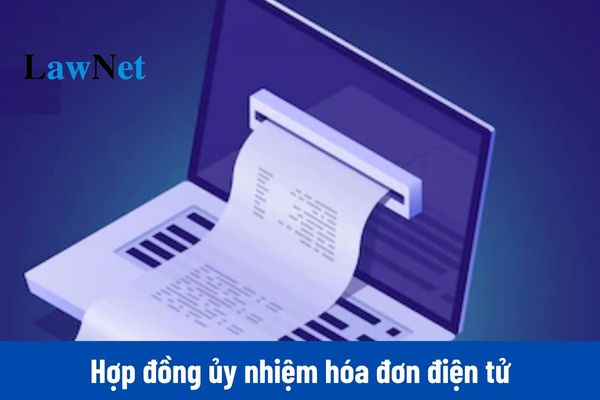Vietnam: What does the contract for authorization to issue e-invoices from an enterprise to a third party include?
Vietnam: What does the contract for authorization to issue e-invoices from an enterprise to a third party include?
Based on Clause 2, Article 3 of Circular 78/2021/TT-BTC, the contents of a contract for authorization to issue e-invoices must fully reflect the following information:
- Information about the delegating party and the delegated party (name, address, tax identification number, digital certificate);
- Information about the delegated electronic invoice (type of invoice, invoice symbol, invoice form symbol);
- Purpose of delegation;
- Duration of delegation;
- Payment method for the delegated invoice (clearly stating the responsibility for payment of goods and services on the delegated invoice);
The delegating party and the delegated party are responsible for storing the delegation document and presenting it when requested by the competent authority.

Vietnam: What does the contract for authorization to issue e-invoices from an enterprise to a third party include? (Image from the Internet).
What are the principles for authorization to issue e-invoices in Vietnam?
According to Clause 1, Article 3 of Circular 78/2021/TT-BTC the principles for authorization to issue e-invoices are as follows:
- Sellers of goods and providers of services, including enterprises, economic organizations, and other organizations, have the right to delegate to a third party that has a related party relationship, meets the conditions for using electronic invoices, and is not suspended from using electronic invoices as per Article 16 of Decree 123/2020/ND-CP to issue electronic invoices for their enterprise activities.
The related party relationship is defined according to the tax management laws;
- The delegation must be made in writing (contract or agreement) between the delegating party and the delegated party;
- The delegation must be notified to the tax authority when registering for electronic invoice usage;
- Electronic invoices prepared by the delegated organization are either with or without a tax authority's code and must clearly show the name, address, and tax identification number of the delegating party and the delegated party;
- The delegating party and the delegated party must post on their respective websites or publicly announce via mass media so that buyers of goods and services are aware of the delegation of invoice issuance.
When the delegation period ends or the delegation is terminated earlier as per the agreement, the delegating party and the delegated party must cancel the postings and announcements on their websites or publicly on mass media regarding the delegation of invoice issuance;
- In cases where the delegated invoice is an electronic invoice without a tax authority's code, the delegating party must transfer the electronic invoice data to the directly managing tax authority or through a service provider to send the electronic invoice data to the managing tax authority;
- The delegated party is responsible for issuing electronic invoices according to actual enterprise occurrences, following the agreement with the delegating party, and complying with the principles set out in Clause 1, Article 3 of Circular 78/2021/TT-BTC.
What are the cases in which an enterprise must suspend using electronic invoices under these principles in Vietnam?
Based on Clause 1, Article 16 of Decree 123/2020/ND-CP, it is stipulated that enterprises, economic organizations, other organizations, households, and individuals engaged in enterprise will cease using electronic invoices with a tax authority's code or electronic invoices without such a code in the following cases:
- enterprises, economic organizations, other entities, households, and individuals engaged in enterprise terminate their tax identification number;
- enterprises, economic organizations, other entities, households, and individuals are verified and notified by the tax authority as not operating at the registered address;
- enterprises, economic organizations, other entities, households, and individuals notify the competent state management authority of a temporary suspension of enterprise activities;
- enterprises, economic organizations, other entities, households, and individuals receive a tax authority notice to suspend using electronic invoices for tax debt enforcement;
- Acts of using electronic invoices for selling smuggled goods, prohibited goods, counterfeit goods, or infringing intellectual property rights discovered and reported to the tax authority by relevant authorities;
- Acts of issuing electronic invoices for selling non-existent goods or services to embezzle money from organizations or individuals discovered and reported to the tax authority by relevant authorities;
- When an enterprise registration office or competent state authority requests a temporary suspension of enterprise lines subject to conditional enterprise requirements upon discovering that the enterprise does not meet the legal enterprise conditions.
Note: Based on the findings from inspections, if the tax authority determines that an enterprise was established solely to unlawfully buy, sell, or use electronic invoices, or to use them illegally to evade taxes, the tax authority will issue a decision to cease the use of electronic invoices, and the enterprise will be sanctioned as prescribed by law.

